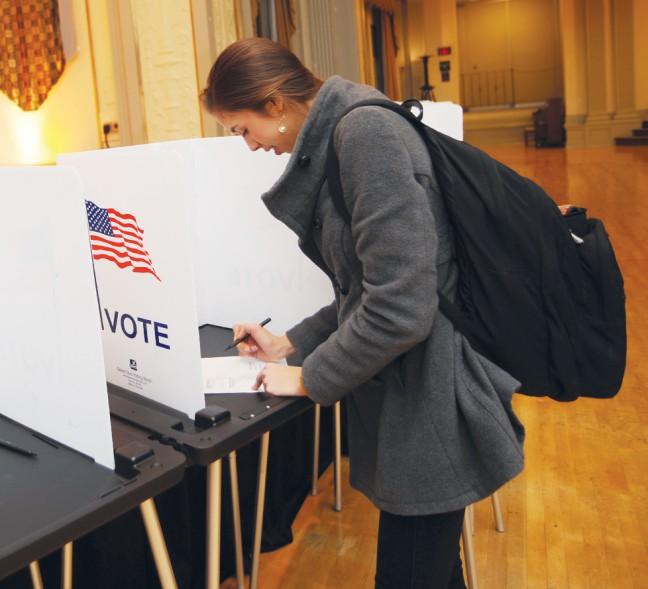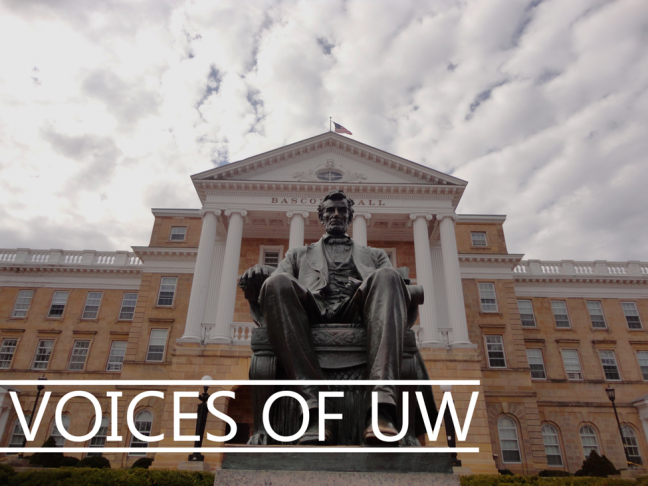We politely disagree with the March 14 opinion column by Sarah Blasky, Beth Huang and Taylor Marx in which they accuse Interim Chancellor David Ward of having disregarded shared governance. Their particular concern is a laudable one, namely the university’s current contractual dispute with the Adidas Group. The issue at hand is whether Adidas is in violation of the code of conduct and sponsorship agreements they signed with the University of Wisconsin as part of a licensing agreement, by not contributing to severance payments due workers at a plant in Indonesia. Sarah, Beth, and Taylor are also correct that the Labor Licensing Policy Committee, a UW shared governance committee, has requested that the chancellor put Adidas on notice that their contract will be terminated if they do not comply.
Our concern is that they misinterpret the way that shared governance works at UW. It is not about the chancellor complying with shared governance committee recommendations. Shared governance is about cooperation and collaboration, and all shared governance committee recommendations are only advisory to the chancellor and, ultimately, the Board of Regents. While faculty, academic staff and students are vested in the development of institutional policy through shared governance, it is chancellors who “shall be the executive heads of their respective faculties and institutions and shall be vested with the responsibility of administering board policies under the coordinating direction of the president and be accountable and report to the president and the board on the operation and administration of their institutions.” (Wis. Stat. sec. 36.09(3)(a)) Put in simple words, Ward reports only to the Board of Regents.
The facts of the particular Adidas matter are that along the way, Ward or his staff have consulted regularly with the LLPC. We believe he has taken their concerns seriously. He has brought their concerns to other shared governance leaders including the two of us and the University Committee, the Academic Staff Executive Committee and the Associated Students of Madison, as well as the Board of Regents, who under state statutes have the ultimate authority to govern policy matters at UW and other UW System campuses. That is what shared governance is about – cooperation and consultation. Ward has pursued that path relentlessly on this issue.
Reasonable people can disagree on strategy and tactics in complicated matters. Ward has chosen to pursue a path of mediation prior to one of putting Adidas on notice of contract termination. We agree this choice is a prudent one. It may avoid costly court battles, and it could result in the workers receiving severance payments through a cooperative outcome. It does not preclude the termination choice if mediation fails. Ward has stated and restated his willingness to pursue that path if it proves necessary.
At a broader level, it has been our repeated experience on a wide range of matters over the past nine months that Ward respects shared governance deeply. The fact is he consults with shared governance leaders, committees and representative bodies openly, repeatedly and collaboratively. The article’s accusation regarding his respect for shared governance is, in our view, unfair, and it is not representative of his leadership. Indeed, he is working hard at all levels of the institution to strengthen the commitment of UW, the Board of Regents and ultimately the state of Wisconsin to the practice of shared governance. We encourage the authors and the LLPC to find ways to deepen cooperation and collaboration rather than demanding compliance. We believe this is the only path to making shared governance work well for the UW.
Bradford L. Barham ([email protected]) is chair of the University Committee and a professor of agricultural and applied economics.
Heather Daniels ([email protected]) is chair of the Academic Staff Executive Committee and a senior administrative program specialist of the graduate school.











